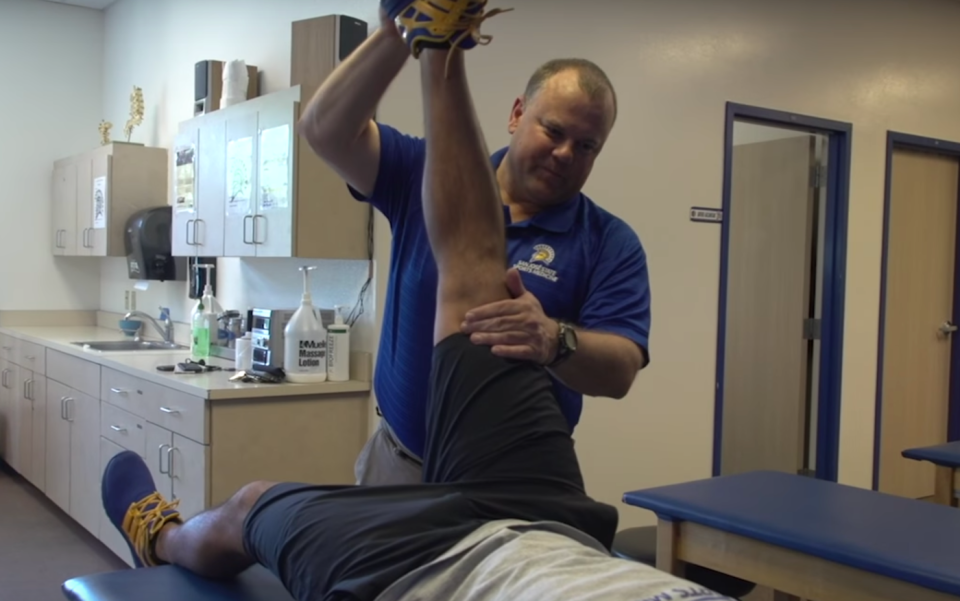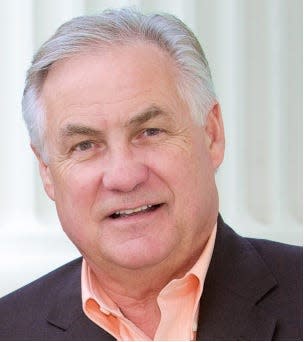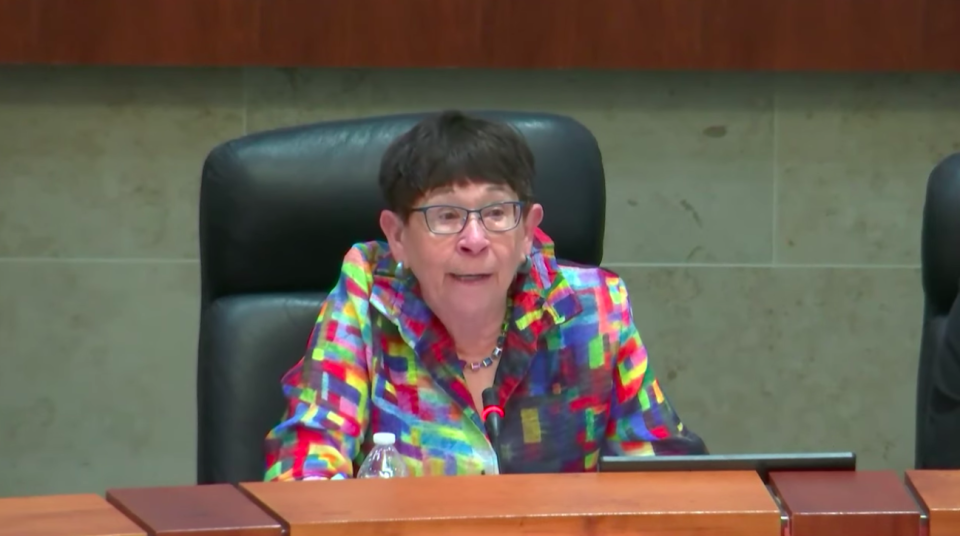California State University's mishandling of sexual misconduct comes home to roost this week
It has not been a good week for California State University.
A relentless march of high-profile scandals that has roiled the nation’s largest public university system for months culminated this week in a pair of sobering reports detailing widespread failures in the CSU’s handling of sexual misconduct allegations and pervasive toxic behavior across its 23 campuses.
The first report, by an outside law firm, was released Monday. The second, by the California State Auditor's Office, came out Tuesday.
This week also kicked off the federal trial of a former athletic trainer for the university’s fifth-largest campus accused of sexually abusing more than two dozen female student-athletes under the noses of campus officials who did nothing to stop it.
Scott Shaw, who was San Jose State’s longtime sports medicine director, faces six misdemeanor counts of depriving female athletes of their civil rights by groping their breasts or buttocks during physical therapy treatments from 2017 to 2020.
As many as 13 former Spartan athletes may testify against Shaw, including the four victims behind the charges and nine others – for whom the statute of limitations has expired – who said Shaw sexually assaulted more than a decade ago.

Jury selection for Shaw’s trial began Monday morning – just as the first report became public.
Here’s a breakdown of what you need to know:
Law firm’s report found a system designed to fail
Amid public outcry and the resignation of its then-chancellor over mishandling sexual misconduct and abusive behavior, the California State University system’s Board of Trustees last March hired outside law firm Cozen O’Connor to conduct systemwide assessment of the university’s Title IX practices, as well as its handling of discrimination, harassment and retaliation.
On Monday, the results of that assessment became public. The firm issued a 236-page report detailing multiple failures of the system as a whole, as well as individual reports identifying problems at each of the 23 campuses.
The big takeaway: Enforcing the provisions of state and federal laws banning sex discrimination in education and other abusive conduct is a complex and difficult job, but the university made it worse by implementing a flawed system and starving it of resources.
It was, in essence, designed to fail. And fail it did.
These failures were fueled by a lack of coordination across the sprawling university system that left individual campuses winging it when it came to documenting, investigating and resolving complaints, the report found. Rather than set clear expectations and consistent processes for handling such matters, the report revealed, the chancellor’s office provided ad-hoc advice and had no centralized system to collect, track and manage data and information.
The report also highlighted a severe lack of staffing and resources that made it all but impossible for campuses to adequately implement the requirements of applicable university policies or state and federal laws, especially the equity in education law known as Title IX. As a result, those who reported sexual misconduct or other harmful behavior felt unheard at best and further traumatized at worst.
"Their findings come as no surprise, said Stephanie Ocampo, a survivor of sexual misconduct at Fresno State, commenting on the Cozen report. "The University let me down in so many ways. I can only hope that it will do what it needs to do to fix its problems."
The university committed to adopting the many recommendations in that report.
That work," Interim Chancellor Jolene Koester said recently, "begins now."
Auditor’s report revealed lack of accountability
In June last year, as one CSU campus after the next made headlines for shielding employees accused of toxic workplace conduct and sexual harassment, members of the state legislature’s Joint Legislative Audit Committee approved an audit into the system’s handling of such complaints involving executives, faculty, and staff at the chancellor’s office and three campuses with a history of problems: Fresno State, San Jose State and Sonoma State.
The results of that audit became public Tuesday.
A lengthy report released by the Auditor’s Office found that campus officials simply didn’t investigate many of the allegations they received and, when they did, failed to take action against the accused even when they were found at fault.
The auditor’s office reviewed 40 cases of alleged sexual harassment from 2016 through 2022. It found numerous problems in the processes campuses used to address the complaints and had significant concerns with the processes campuses used when they conducted investigations. A third of investigations they reviewed contained “deficiencies that causes us to question the campuses' determinations that sexual harassment had not occurred.”
Echoing many of the findings in the Cozen O’Connor report, the auditor blamed the chancellor’s office for failing to set clear expectations and detailed guidelines for how its campuses should handle complaints against employees. As a result, there was haphazard handling of complaints.
“The campuses’ responses to the sexual harassment allegations that we reviewed demonstrated a level of inconsistency from case to case and from campus to campus that warrants stronger systemwide oversight,” the report noted.
Shoddy record keeping and inconsistent data collection across the campuses made it difficult for auditors to accurately assess how each case unfolded or the validity of decisions that were made – not to mention account for the total number of allegations reported or investigated.
“Their own internal review and the report of the independent state auditor have come to very similar conclusions,” said California Assemblymember Jim Patterson, a member of the assembly’s Joint Committee on Legislative Audit and the first lawmaker to request the state audit of the CSU’s Title IX and human resources practices.
“We have an institution that frankly looks like it was more concerned about itself and its reputation than in the truth and honesty of what was happening in the university system itself.”

Hundreds of employees accused systemwide
At least 1,251 CSU employees were the subject of sexual harassment allegations from 2018 to 2022, according to the auditor’s report, which provided a breakdown of those claims by campus. The Fullerton campus, the system’s largest by enrollment, had the most with 223.
Of the total number of complaints, just 254 were investigated and, of those, 98 were substantiated.
At least 159 employees repeatedly violated CSU policy, the report found.
The audit, Patternson said, reinforces his belief that that the problems handling sexual harassment and misconduct are systemwide, not just limited to his alma mater, Fresno State.
Patterson noted that the California state auditor has the authority continue digging into issues with the CSU and to follow up to ensure they’ve adopted the audit’s recommendations. He said he hopes the report is the turning point for the CSU system.
“It’s very clear that the CSU is going to have to account for the findings, and they’re going to have to make specific and measurable changes,” Patterson said. “If the CSU System does not take the audit very seriously, you will probably see legislative members engage in the possibility of legislation to force the CSU to get these solutions and start now.”
The report also includes a statement by Koester: "We agree with and will implement the recommendations provided in the audit report, as well as those identified in the Cozen assessment, to strengthen our culture of care and compliance and advance the CSU’s core values of equity, diversity, and inclusion.”

Scott Shaw's trial underway
This week’s trial of Shaw comes three years after a USA TODAY investigation first revealed the allegations against him, in April 2020. That story is now listed among the evidence prosecutors may introduce at his trial.
Six women detailed their experiences with Shaw for the story, which also described then-athletic director Marie Tuite’s efforts to retaliate against the whistleblower and another top administrator for bringing the allegations to light.
In 2009, 17 members of San Jose State’s swimming and diving team told their coach, Sage Hopkins, that Shaw touched their breasts, buttocks and pelvic regions – often beneath their undergarments – when they sought treatment for other areas of their bodies. After Hopkins reported it, a human resources investigation by the school cleared Shaw of wrongdoing, saying his touching constituted legitimate medical treatments.
A second investigation in 2020 was also mishandled, according to the U.S. Department of Justice’s Civil Rights Division. Federal officials found San Jose State officials violated Title IX for more than a decade by repeatedly failing to adequately respond to reports of Shaw’s conduct. It also found both the university’s 2009-10 and 2019-20 investigations severely deficient. The university has agreed to pay at least $6.6 million to settle the legal claims of 28 of Shaw’s alleged victims.
“For some girls, the fact that they were told (by the school) that this sexual assault was OK has affected their relationships for the past decade,” Linzy Warkentin, one of the 17 swimmers who reported Shaw to Hopkins, told USA TODAY last year. “Perhaps they can finally start to heal from that.”
The story that kicked off the latest wave of concerns
The two reports released this week were launched amid the fallout from a USA TODAY investigation last February that revealed how then-CSU Chancellor Joseph Castro ignored sexual harassment, bullying and retaliation complaints against a senior administrator with whom he was friends during his tenure as president of CSU’s Fresno campus.
Rather than discipline or terminate the administrator, Castro gave him glowing reviews and even nominated him for a prestigious lifetime achievement award. When Castro could no longer ignore the behavior, he authorized a settlement agreement that allowed the administrator, Frank Lamas, to retire with a clean record and $260,000. He also provided a letter of recommendation for future employment elsewhere.
Castro was named chancellor of the CSU's entire 23-campus system weeks after signing the settlement, a position he held for little more than a year. He resigned in February 2022 in the wake of USA TODAY’s reporting. He now serves as a professor of leadership and public policy at CSU’s Cal Poly San Luis Obispo.
This article originally appeared on USA TODAY: California State University faces music this week on systemic failures

